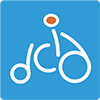Co-Design of Collaboration Monitoring Apps for Teacher-Children to support Autism in Religious Skills
Abstract
Purpose: This study introduces a collaborative model involving teachers and children to enhance the religious learning progress of students with Autism Spectrum Disorder (ASD) in educational settings. The proposed collaborative model utilises assistive technology to monitor and support the learning journey of these children. The primary objective is to design a mobile-based assistive technology application, MyQuranic, tailored to support the development of religious skills in children with ASD.
Method: Qualitative methods, including interviews and focus group discussions with UI designers, subject matter experts, and mobile app specialists, were employed to identify the needs and requirements in developing the MyQuranic application. Thematic analysis was applied to interpret the data, resulting in the emergence of findings based on key themes. Co-design principles were incorporated in the design process to ensure the active involvement of end-users, including individuals with autism. This collaborative approach aimed to create a user-friendly, contextually relevant, and effective technology solution, emphasising the unique perspectives and needs of individuals with ASD.
Results: The study outcomes include the potential of design principles for teachers to monitor the learning engagement and interest of children with autism in religious studies using the MyQuranic application. The findings are expected to contribute valuable insights to the broader community, particularly researchers focused on autism-related studies.
Conclusion: This study underscores the significant role of assistive technology in the education of children with autism, specifically within the religious education context. By employing co-design principles, the MyQuranic application strives to enhance social interaction skills, address individual needs, and contribute to the overall advancement of educational support for individuals with ASD.
Full text article
Authors
Copyright (c) 2024 The Author(s)

This work is licensed under a Creative Commons Attribution-NonCommercial-NoDerivatives 4.0 International License.
Authors who publish with this journal agree to the following terms:
- Authors retain copyright and grant the journal right of first publication with the work simultaneously licensed under a Creative Commons Attribution License By-NC-ND 4.0 that allows others to share the work with an acknowledgement of the work's authorship and initial publication in this journal.
- Authors are able to enter into separate, additional contractual arrangements for the non-exclusive distribution of the journal's published version of the work (e.g., post it to an institutional repository or publish it in a book), with an acknowledgement of its initial publication in this journal.
- Authors are permitted and encouraged to post their work online (e.g., in institutional repositories or on their website) prior to and during the submission process, as it can lead to productive exchanges, as well as earlier and greater citation of published work (See The Effect of Open Access).





